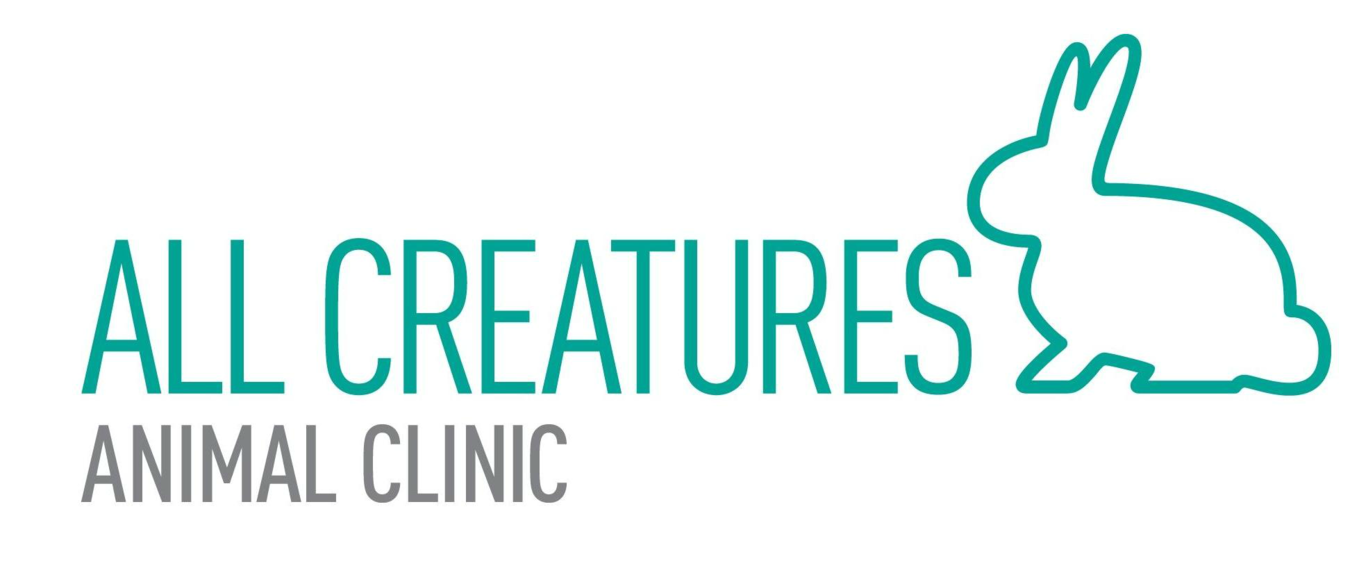CARE FOR THE DOMESTIC RABBIT
FOOD
Grass hay (timothy, orchard) should be available AT ALL TIMES
Fresh greens should be offered daily (1 cup/4 lbs of body weight)
Rabbits under 4 months of age should have unlimited access to pellets
Any greens are acceptable (except iceberg lettuce), but variety is a good idea
Great greens: Leaf lettuce, Dandelion, Escarole, Beet greens, Cilantro, Kale Romaine, Carrot tops, Parsley
Limited Timothy hay based pellets can be given (1/4 cup for 4 lbs of body weight per day)
Treats should only make up a very small amount of the diet (1-2 tsp/day)
Acceptable treats: Slice of apple/banana/carrot, raisins or dried fruit
Rabbits eat cecatrophs ("night feces") which are nutrient rich digestive products
Water
Some rabbits drink a lot of water (up to 4x what other mammals drink)
Use a hanging water bottle or multiple open bowls
Change water daily and check that water sippers don't become clogged
Behavior
Rabbits are most active in the early morning and in the evening
Rabbits are social, but prefer minimal handling
A "binky" is a jump into the air with a twist= typical behavior in a healthy rabbit
Handling
Most rabbits do not like to be picked up and they can injure themselves if struggling
Always support a rabbit’s hind end when picking them up
Keeping a rabbit's face covered can help calm them when being handled
Wrapping a rabbit in a towel can aid in home examination and nail trims
Never pick a up a rabbit by its ears!
Toys
Cardboard boxes, wicker baskets and durable parrot toys make great toys
Make sure your rabbit has comfy places to hide
Housing
Rabbits thrive in large hutches/cages, rooms/penned areas or free roaming inside
Rabbits can be housed singly or in bonded pairs and trios
Solid flooring (no grates) is necessary for all living spaces
Rabbits need at least 1 hour of exercise out of the cage per day
Rabbits need a cage large enough for them to stand on their hind legs without hitting their ears on the ceiling and to stretch out in all directions
Cover all cords in the rabbit’s environment with thick plastic tubing
Generally, do not allow dogs and cats in contact with rabbits
Rabbits should not be housed with guinea pigs as they can spread disease to each other
Rabbits can experience heat stress at temperatures over 80-85 degrees F
Litter box
Most rabbits can be litter box trained, especially if spayed/neutered
Put some of the rabbits hay in the litter box to encourage use
Line litter box with Carefresh or Yesterdays News litter. DO NOT use cat litter!
Change litter box at least every other day
Grooming
Regular nail trims are needed for all rabbits
Long-haired rabbits require careful attention to prevent matting (especially Angoras)
Some rabbits require regular sanitary bathing (especially if old or overweight)
Medical
We recommend spaying and neutering at 5 months of age
Many female rabbits develop uterine carcinoma if not spayed
Pet insurance is available through "Veterinary Pet Insurance"
Rabbits are prey species and they will hide their illnesses, so bring them in promptly
A rabbit that does not eat or pass droppings for >12 hours needs emergency care!
Other common signs of illness include: heavy breathing, sneezing, eye/nose discharge, small/hard poops, tight abdomen, tooth grinding, drooling, bald patches, flaky skin, dribbling urine, bald sores on feet, unusual aggression
Rabbit Hemorrhagic Disease
There is a new, dangerous disease threatening our pet rabbits. But, luckily, we have the tools to keep them safe. A new vaccine has been developed, and we are starting to vaccinate our pet rabbits now. We recommend that all pet rabbits receive this new vaccine as soon as possible.
Rabbit Hemorrhagic Disease (RHD) is caused by a highly contagious virus. It affects both pet rabbits and wild rabbits. It causes severe illness, including seizures, fever, bleeding from orifices and sudden death. The current outbreak of RHD has a 70-90% mortality rate.
This disease has been present on other continents for several decades, but had not previously been found in the US outside of a few controlled incidents. In 2020, it was detected in wild rabbits in the United States and Mexico. Since this period of time, it has spread through the wild and pet rabbit populations and has caused many deaths.
Though the virus has not yet been reported in Michigan, it is spreading rapidly across the US. In addition to direct contact, it can also be spread on objects including food and bedding. Our Michigan rabbit population is at risk and that risk is only expected to grow in the coming years.
Recently, a new vaccine has been developed by a company called Medgene. This vaccine has been shown to be safe and highly effective. The vaccine is given as 2 doses, 3 weeks apart, then yearly thereafter.
Since the vaccine is so new, we cannot give it on an “as-needed” basis yet. However, All Creatures Animal Clinic will be holding a series of vaccine clinics starting this spring. Rabbit owners can call in advance to reserve their spot in an upcoming vaccine clinic. Many other vet hospitals that see rabbits are also starting vaccine clinics.
Please help us spread the word, so that we can get all of our pet rabbits protected!
Resources:
Comprehensive Client information from The House Rabbit Society:
Vaccine manufacturer information:
USDA interactive Case map:
Michigan DNR fact sheet:
California Department of Agriculture Fact Sheet (comprehensive information):


